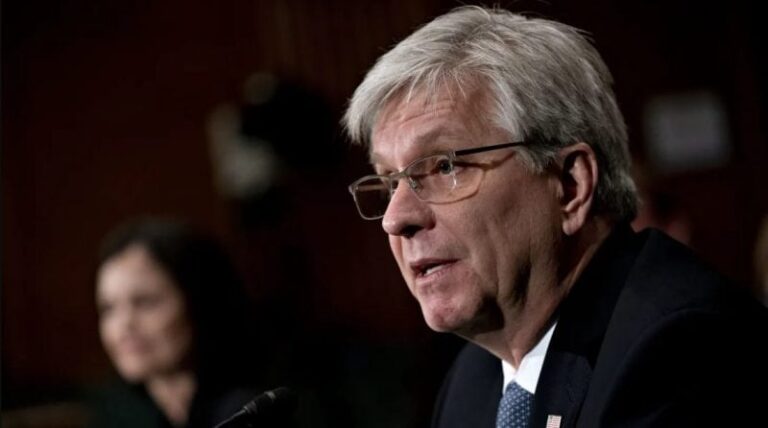Important points
Christopher Waller discussed the potential of DeFi to complement traditional finance. Waller highlights the benefits and risks associated with stablecoins.
Share this article
Federal Reserve President Christopher Waller said at the Vienna Macroeconomics Workshop on Friday that DeFi has the potential to complement centralized finance as these technologies can improve the efficiency of traditional financial activities. . He also sees DeFi as an alternative to centralized finance, as it allows individuals to trade assets without intermediaries.
“Rather than relying on each party to execute the transaction separately, smart contracts can effectively combine multiple parts of a transaction into a single unified act performed by the smart contract. These efforts are still in their infancy, as they reduce payment-related and counterparty risks by ensuring that buyers do not pay if sellers do not deliver. “However, this functionality could be extended to a wide range of financial activities,” Waller said.
“DLT (distributed ledger technology), tokenization, smart contracts, etc. are just technologies for transactions that can be used in DeFi or to improve the efficiency of centralized finance. That’s why I see them as complementary. “I think it’s something,” he added.
Mr. Waller also touched on the advantages and disadvantages of financial intermediaries, who often facilitate transactions by reducing the time and cost of finding a counterparty.
He pointed out that while intermediaries help match buyers and sellers, they also introduce transaction costs and administrative issues, often leading to an imbalance of incentives between principals and agents.
Historically, advances in technology have driven changes in finance, and DeFi represents the latest wave of innovation aimed at improving transaction processes.
Waller explained the important role of stablecoins in DeFi. He described stablecoins as “virtually digital currencies” that can help reduce the need for traditional payment intermediaries and reduce global payment costs.
Waller said DeFi’s technological underpinnings, such as blockchain and smart contracts, “will almost certainly lead to increased efficiency over time.”
While DeFi technology has promising benefits, there are concerns about its security, reliability, and potential regulatory implications, Waller said. He also warned of risks associated with stablecoins, including the potential for them to be used for illegal financing and historical precedents in which synthetic dollars faced trading.
Policymakers urged tailored regulations to safely maximize the benefits of DeFi. He also called for a balanced view that considers both the disruptive potential of DeFi and the enduring value of centralized financial systems.
“When it comes to financial plumbing that affects every individual and business in some way, I think it’s worth taking a balanced view of quick disruption and long-term sustainability,” he said. .
Share this article


